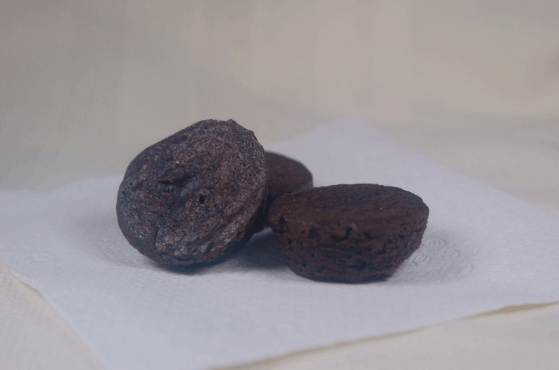
[cmamad id=”22910″ align=”center” tabid=”display-desktop” mobid=”display-desktop” stg=””]
Men who work out all the time thinking it’s healthy… Well, you MUST read this… (And if you have a buddy who brags about his intense workouts, forward today’s newsletter to him!)

—-Important Message—-
I was suffering from high estrogen levels and low testosterone – and I didn’t know it!
Belly fat, poor erections, poor penile blood flow, chest fat (man boobs), and a feeling of slinking around rather than standing tall…
I had trouble looking women in the eye…
That’s bad, real bad.
Many if not MOST men suffer high estrogen and low testosterone… But there is a remedy.
And any man can use this natural remedy to lower harmful estrogen and increase natural testosterone – and get much better erections at the same time.
———-
Tell this to your buddies who work out all the time
This newsletter is about a bad testosterone-lowering mistake men make.
To explain, I have to talk a little bit about exercise. Fitness. Workouts. Okay with you?
Okay, let’s do it…
So getting regular exercise can make you leaner and more muscular.
Exercise can even lower the risk of type 2 diabetes, Parkinson’s, Alzheimer’s, and depression.
And proper training can boost levels of the masculine hormone testosterone by up to 50%.
But with exercise, more is not necessarily better.
Overtraining is as much a problem as inactivity is a problem.
Men who take part in too much resistance training triple their risk of having low testosterone!

These researchers carried out their human research at the University of North Carolina, Chapel Hill. They published their results in the journal The Ageing Male.
Exercise has many health benefits for men.
The right training program can improve testosterone levels and increase fertility.
“Increased levels of physical activity are associated with many positive health outcomes in men including reproductive health.”
[cmamad id=”22911″ align=”center” tabid=”display-desktop” mobid=”display-desktop” stg=””]
However, in recent years researchers discovered that some types of exercise can be damaging to the male reproductive system.
“Recent findings have alerted endocrinologists to the fact that high-volume, endurance-based exercise training programs are associated with suppressed testosterone in men.”
The research on this effect is pretty limited.
And there are many questions that need to be answered.
“We wondered whether these exercise-related reductions in testosterone reached the clinical diagnostic threshold for androgen deficiency and occurred across the life span of runners.”
Most of the research so far has involved young men.
And in previous research, it’s not clear whether the reduction in testosterone would reach clinically significant levels (androgen deficiency).
So the researchers recruited almost 200 younger and older men who were participants in endurance training.
“We conducted pilot work examining the prevalence of androgen deficiency in endurance-trained men between 18 and 57 years old.”
They compared the men in the study to other men with similar characteristics who were not participants in endurance training.
“Each runner was matched with a healthy, non-exercising control subject. Matching factors were: age (±1 year), BMI (±1 kg/m2), and ethnicity.”
The researchers went to great lengths to match the endurance athletes up with comparable counterparts for the comparison.
“All subjects were required to be at stable body weight and [were] medically screened to ensure excellent health status.”
The men from both groups gave early morning blood samples and the researchers tested those for testosterone levels.
“All subjects provided a morning blood sample. Blood samples were analyzed for total testosterone using standard techniques.”
The researchers then looked at the levels of androgen deficiency across the two groups.
They categorized androgen deficiency as low testosterone – less than 300 ng/dl.
“A threshold testosterone cut-point of 300 ng/dl was used to determine androgen deficiency based upon literature recommendations.”
Endurance athletes were nearly three times more likely to have low testosterone.
“Prevalence of androgen deficiency was 15% in runners and 5.6% in control cohorts, respectively.”
The longer the men participated in endurance exercise, the greater the risk for low testosterone.
“Prior evidence suggests years of exercise training influences testosterone reduction in runners.”
Older men are also at greater risk of low testosterone due to endurance training.
“Evidence suggests advancing age influences testosterone reduction in runners.”
It’s not entirely clear why overtraining causes low testosterone.
But we know it damages communication between the testicles and other glands in the body.
“Intensive or prolonged exercise training exposure leads to a hypothalamic–pituitary–testicular axis dysregulation.”
The study underlines the importance of finding the sweet spot for exercise intensity and duration.
We can only benefit from exercise that we can recover from…
And recovery ability declines with age.
You should always consult a healthcare practitioner about treating and diagnosing health related problems.
—-Important Message About Testosterone—-
Pop this in your mouth before having sex
I found a way to raise testosterone naturally…
…I call them Booster Bites and you can bring them with you anywhere…

They work by stimulating the Leydig cells in a man’s testes. The Leydig cells make your own natural testosterone…
But… These cells have stopped producing testosterone in many men 50 years old or older…
———-

- Increased prevalence of androgen deficiency in endurance-trained male runners across the life span https://www.tandfonline.com/doi/ref/10.1080/13685538.2018.1523888?scroll=top
- Endurance training: is it bad for you? - NCBI https://www.ncbi.nlm.nih.gov/pmc/articles/PMC4933620/
- Limiting Endurance Exercise - University of New Mexico https://www.unm.edu/~lkravitz/Article%20folder/limitations.html
